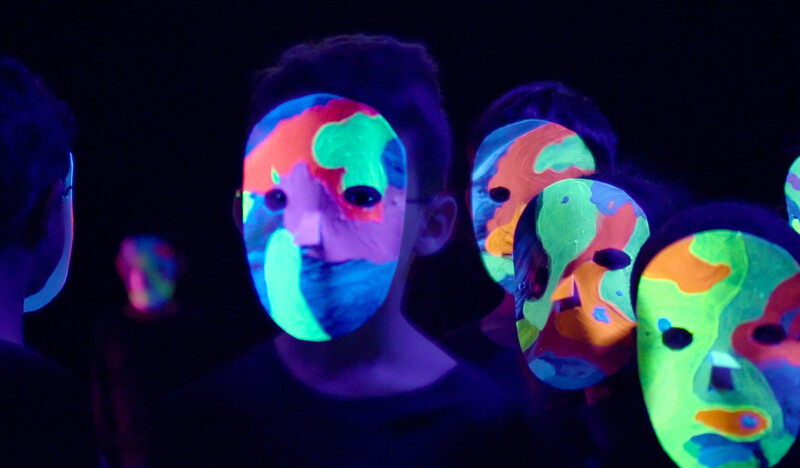
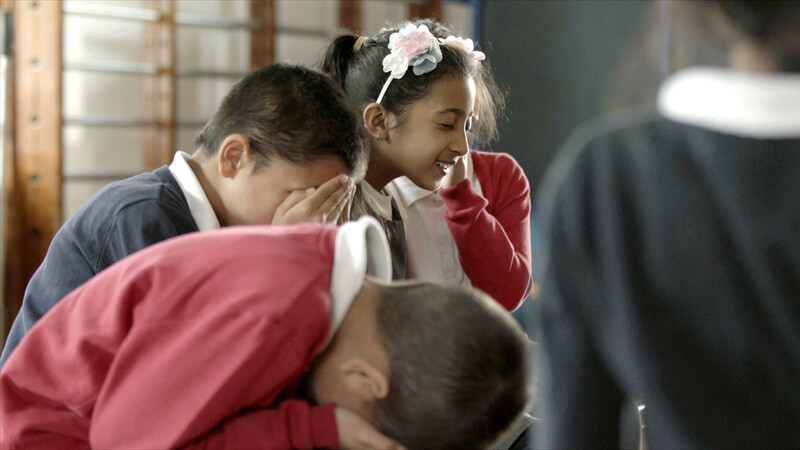
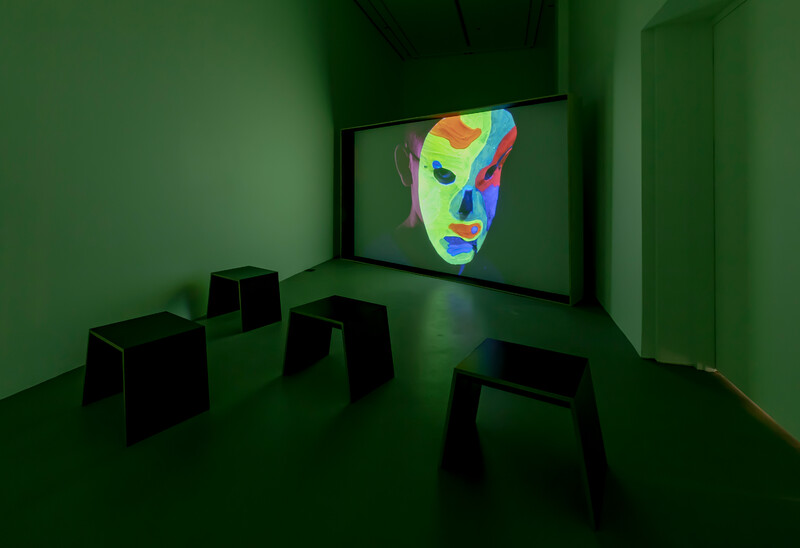
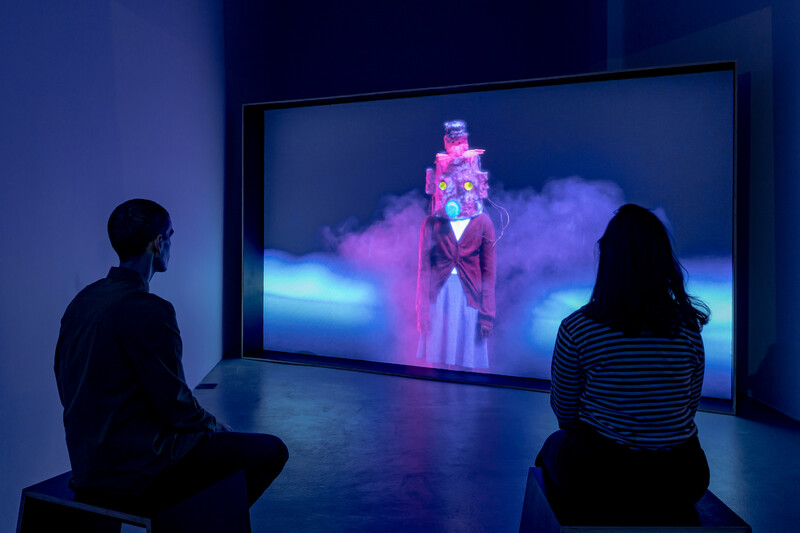
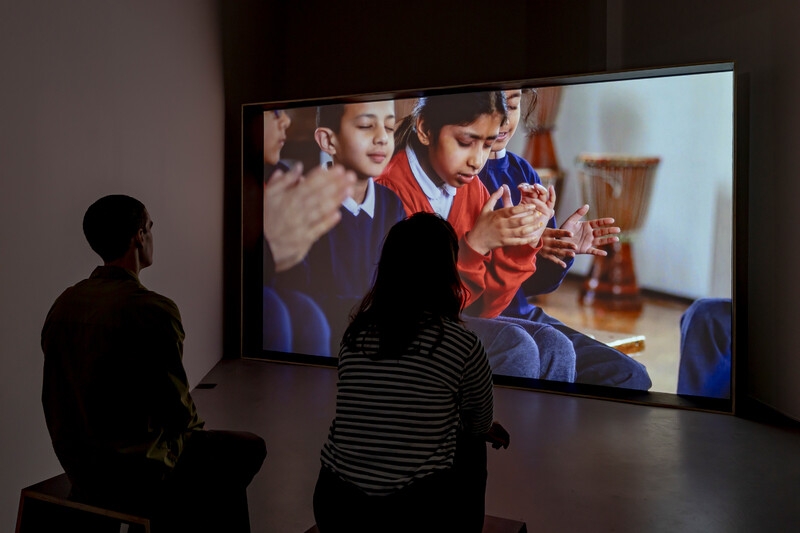
No Ordinary Protest
Select solo exhibitions include Sounds of a Revolution, Calouste Gulbenkian Foundation, Portugal (2024); Songs for the Storm to Come, HOME Manchester, UK (2024); Because We Are Together, National Museum of Contemporary Art Athens (EMST), GR (2023); Acoustics of Resistance, Carpintarias de São Lázaro/Lisboa Soa, PT (2022); Ferocious Love, Tate Liverpool, UK (2020); Children of Unquiet, Fondazione Sandretto Re Rebaudengo, Torino, IT (2019); For Many Voices, Middlesbrough Institute of Modern Art, UK (2019-2020); I Hear You, De la Warr Pavilion, UK (2019-2020); Mikhail Karikis, Mori Art Museum, Tokyo, JP (2019); No Ordinary Protest, Whitechapel Gallery, London, UK (2018-2019). Karikis was shortlisted for the 2019 and the 2016 Film London Jarman Award, UK, and the 2015 Daiwa Art Prize, UK-JP. Select group exhibitions include: A Outra Vida Dos Animais, MNAC – National Museum of Contemporary Art, Lisbon, PT (2022); 5th Mardin Biennial, TR (2022); 2nd Riga Biennial, LV (2020); Kochi-Muziris Biennale 2016, IN; British Art Show 8, UK (2015-2017); Steirischer Herbst, AT (2015); 5th Thessaloniki Biennale, GR (2015); 19th Biennale of Sydney, AU (2014); Mediacity Seoul/SeMA Biennale, Seoul, KR (2014); Videonale 14, Kunstmusuem Bonn, DE (2013); 2nd Aichi Triennale, Nagoya, JP (2013); Manifesta 9, Ghenk, BE (2012); Danish Pavilion, 54th Venice Biennale, IT (2011).
Working across film, sound, and performance, Mikhail Karikis’s project adopts Ted Hughes’s children’s science fiction novel The Iron Woman (1993) as an ecofeminist parable in which communal listening and noise-making become tools to transform the world. In this story, a female superhero gifts children with a mysterious power–a noise. Transmitted by touch, this noise resonates with the collective howl of creatures affected by the pollution of the planet. As the children take matters into their own hands, they infiltrate factories and “infect” adults with their demand for immediate action.
For No Ordinary Protest, Karikis engaged with a group of 7-year-olds from a London primary school throughout their academic year. Through workshops, experimental pedagogical methods, reading, debating, and play, they created a film together which reflects on the environmental themes of the book and imagines the enigmatic noise that assists the protagonists in their protest. Improvising with their voices, on musical instruments and toys, the children conduct cymatic experiments whereby a noise or vocal utterance takes on unique visual forms resembling ever-changing landscapes – the results echo the power of communal noisemaking to mobilise change through sound.
The children gather to debate and they discover a shared sense of justice and responsibility towards the environment, and the urgent need for solidarity with all creatures. The video concludes with the children’s transformation into playful yet monstrous masked agitators confronting the viewer. While being uncertain about our ecological future, No Ordinary Protest uncovers children’s political voice and activist imagination, where communal listening and noise-making become tools that can “move mountains” and transform our world.
Listen – listen –’ The rumbling voice almost cracked into a kind of yell.
[. . .]
‘Oh, what was it?’ cried Lucy.
[. . .]
‘What you heard,’ said the voice, ‘is what I am hearing all the time.’
‘But what is it?’ cried Lucy again.
‘That,’ said the voice, ‘is the cry of the marsh. It is the cry of the insects, the leeches, the worms, the shrimps, the water skeeters, the beetles, the bream, the perch, the carp, the pike, the eels.’
‘They’re crying,’ whispered Lucy.
‘The cry of the ditches and the ponds,’ the voice went on. ‘Of the frogs, the toads, the newts. The cry of the rivers and the lakes. Of all the creatures under water, on top of the water, and all that go between. The water birds, the water voles, the water shrews, the otters. Did you hear that they were crying?’
‘What’s happening?’ she cried.
— excerpts from John Hughes, The Iron Woman

The Blackwood
University of Toronto Mississauga
3359 Mississauga Road
Mississauga, ON L5L 1C6
[email protected]
(905) 828-3789
The galleries are open. Hours of operation: Monday–Saturday, 12–5pm.
Facebook | Twitter | Instagram
Sign up to receive our newsletter.
The Blackwood is situated on the Territory of the Mississaugas of the Credit, Seneca, and Huron-Wendat.